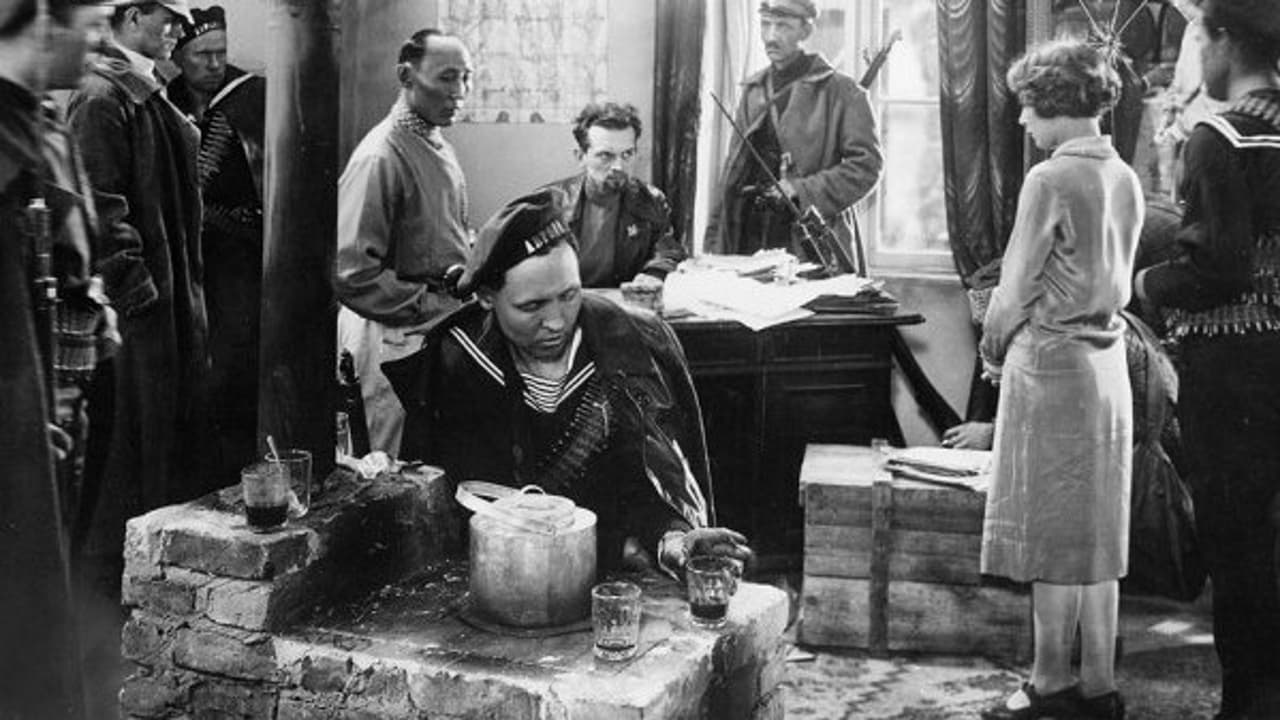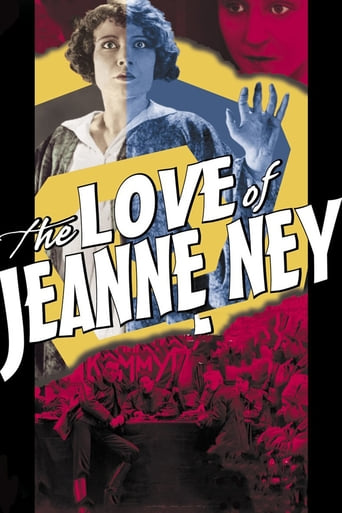

Georg Wilhelm Pabst (or GW Pabst, born in 1885) was one of the great German filmmakers during the silent period. He established his name with his first film, the drama of greed "The Treasure" (1923), but with the third one, "The Joyless Street" (1925) he revealed himself as a major force of the "New Objectivity", beyond the distortions of expressionism, touching the social problems of Germany, between the two great wars. He continued with "Mysteries of a Soul" (1926) and "The Love of Jeanne Ney" (1927), whose recent vision motivates these notes; then gave a masterstroke with "Pandora's Box" (1929), which led Louise Brooks to immortality, and when sound came, in 1930 he released the antiwar drama" Frontline 1918 ", which was banned by the Nazis, made the film version of "The 3-Penny Opera" (1931) by Brecht and Weil, followed by a drama of Franco-German solidarity, "Camaraderie" (1931); an incursion into fantastic cinema with "L'Atlantide" (1932), and his own reading of Cervantes' "Don Quixote" (1933). Although he did not stop working and made more films of value, Pabst saw his career affected by the rise of the Nazis, when he had to move between Berlin, Paris, Hollywood and Vienna, where he died in 1967. The romantic account of "The Love of Jeanne Ney" goes from Ukraine to France, following the daughter of a French diplomat who is in love with a Bolshevik. The couple reunites in Paris after several vicissitudes. The characters include Jeanne's uncle, owner of a research firm, his blind daughter (Brigitte Helm, the Maria of "Metropolis"), a North American millionaire who has lost a invaluable diamond, and a Russian informer who sells to the highest bidder. There are moments of great visual force, as the scene in which the blind girl discovers the corpse of her father; and the initial scenes of the Russian revolution. However, the reason that motivates me to write about the film is, above all, extraordinary actor Fritz Rasp (1891-1976), as the ruthless snitch, fearsome as none. Rasp is an icon of the Teutonic villain: from the first time I saw him as the overwhelming "Thin Man" in Lang's "Metropolis," serving the owner of the city, every time I see him in another film, his characters are not to be trusted and his presence is intimidating: as the colonel in "Spies" and as "The Man" in "The Woman in the Moon", both by Lang, or as the Jew J.J. Peachum, "King of the Beggars", in Pabst's "The 3-Penny Opera". In "The Love of Jeanne Ney" Rasp builds the disgusting character of Khalibiev, an informant who fingers the Bolsheviks in Ukraine, and in Paris not only does he stalk Jeanne and her lover, but uses Jeanne's young blind cousin to concrete his evil plans. As Pabst, Rasp also continued working during the Nazi period, although not acting with the frequency of the past. He had a long career, that included playing the lead in a film of the "new cinema" of West Germany, "Lina Braake" (1975), which was his last appearance in cinema.
... View More"Die Liebe der Jeanne Ney" or "The Love of Jeanne Nay" is a German film from 1927 and this is a year when sound films slowly became more relevant. But this one we have here is still silent and consequently also in black-and-white. It runs for 100 minutes roughly and was directed by Georg Wilhelm Pabst. Rudolf Leonhardt and (the more known) Ladislaus Vajda adapted a novel by Ilja Ehrenburg for the screen here. The lead actress is Édith Jéhanne and it is by far her most known portrayal. Her character was surprisingly short-lived compared to her co-star's Brigitte Helm for example and she also did not manage to make a transition into sound films. Overall, this is nowhere near Pabst's most or least known works, but the French background also shows that the filmmaker worked on movies that went way beyond Germany's borders. However, I also must say that this film here did not get me interested in any other of his works and most of the stuff I saw from him left me fairly unimpressed. Of course, the reason may be that I generally do not care about silent films too much, but still, looking at some of the films' IMDb rating (also this one) I expected better quality. I do not recommend Jeanny Ney as I did hardly care for the character at all. Thumbs down.
... View MoreLike most films, The Love of Jeanne Ney is a melodrama, one of the right sort that absorbs you in the story. One hook is, or was, political, with a choice of sides in the Civil War in Russia, refined as support for workers in France, including Jeanne at her typewriter while her uncle does fancy deals. The lasting hook is the skill with which the film is made, particularly the handling of scenes on a train and outdoor scenes. These include lengthy tracking shots well edited together: the hero, running to keep up with an automobile, and especially a long walk through crowds in the market of Les Halles in Paris, which is Atget in motion. Without Pabst, no Renoir, no Altman.
... View MoreLove of Jeanne Ney(1927) is an involving Wartime melodrama with images that impress. Definitely the work of a great director in G.W. Pabst who is the second greatest filmmaker in German Silent films right after Fritz Lang. Includes a post Metropolis role for Brigitte Helm. Acting is very good and the set designs are some of the best in Silent cinema. A downbeat film with a contrasting happy ending.
... View More